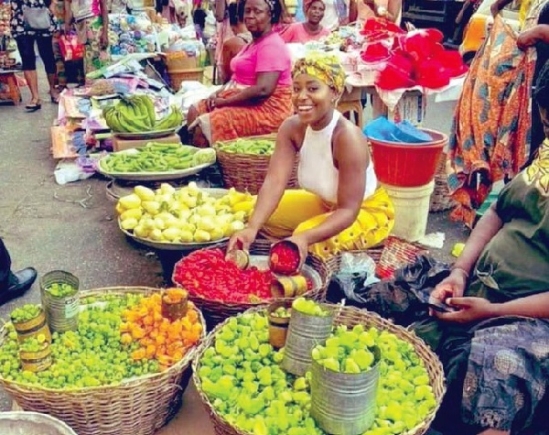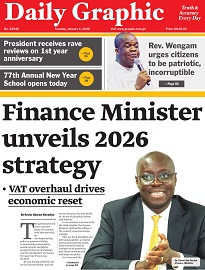
Ghana misses inflation target — December rate inches up to 23.8%
Ghana has missed its end-of-year inflation target by a significant margin, with December's rate of 23.8 per cent far exceeding the government's projected target of 15 per cent in the 2024 budget, as well as the Bank of Ghana’s target of 18 per cent.
This could complicate the country's ongoing International Monetary Fund programme as December's 23.8 per cent rate raises questions about the achievement of key performance criteria.
The significant deviation from the target, which exceeded projections by 8.8 percentage points, may trigger additional reviews of the government's economic reform agenda.
The latest figures from the Statistical Service reveal the country's continued struggle to rein in rising prices, with food inflation rising to 27.8 per cent.
The monthly change rate for December stood at 1.8 per cent, indicating persistent upward pressure on prices. Food and non-alcoholic beverages remained the key driver of inflation, while non-food inflation recorded 20.3 per cent.
Regional variations compound the challenge of meeting national inflation targets, with the Upper East Region recording the highest inflation rate of 40.6 per cent, while the Eastern Region experienced the lowest at 16.8 per cent.
Even the best-performing region exceeded the government's year-end target, highlighting the widespread nature of inflationary pressures. Nine regions reported inflation rates above the national average of 23.8 per cent, underscoring the breadth of the economic challenge facing policymakers.
The failure to meet the inflation target suggests that existing monetary and fiscal measures have yet to effectively curb rising prices across the country.
For ordinary Ghanaians, the missed inflation target translates to the continued erosion of purchasing power, with food costs in particular rising faster than other consumer goods.
The significant deviation from the government's target indicates that consumer relief from high prices remains elusive, with essential household expenditures continuing to rise well above planned levels
Call for policy interventions
Announcing the December inflation, the Government Statistician, Professor Samuel Annim said the country needed a two-pronged strategy to combat inflation, combining both monetary policies and real sector interventions.
"We emphasise that addressing inflation requires two distinct approaches. While monetary policies are crucial, we must equally focus on real sector challenges, particularly in our local food production systems,"
Key areas
The government statistician identified several key areas requiring immediate attention to stabilise food prices, which remained high at 27.8 per cent in December.
These include boosting local food production, strengthening value chains, improving transportation networks, expanding warehousing facilities and reducing post-harvest losses.
He cautioned against an over-reliance on single-policy solutions, particularly those focused solely on exchange rate management.
"Policymakers must implement diverse interventions rather than concentrating only on exchange rates or selected items.
We need comprehensive solutions that address the full range of food items driving price increases," he explained.
